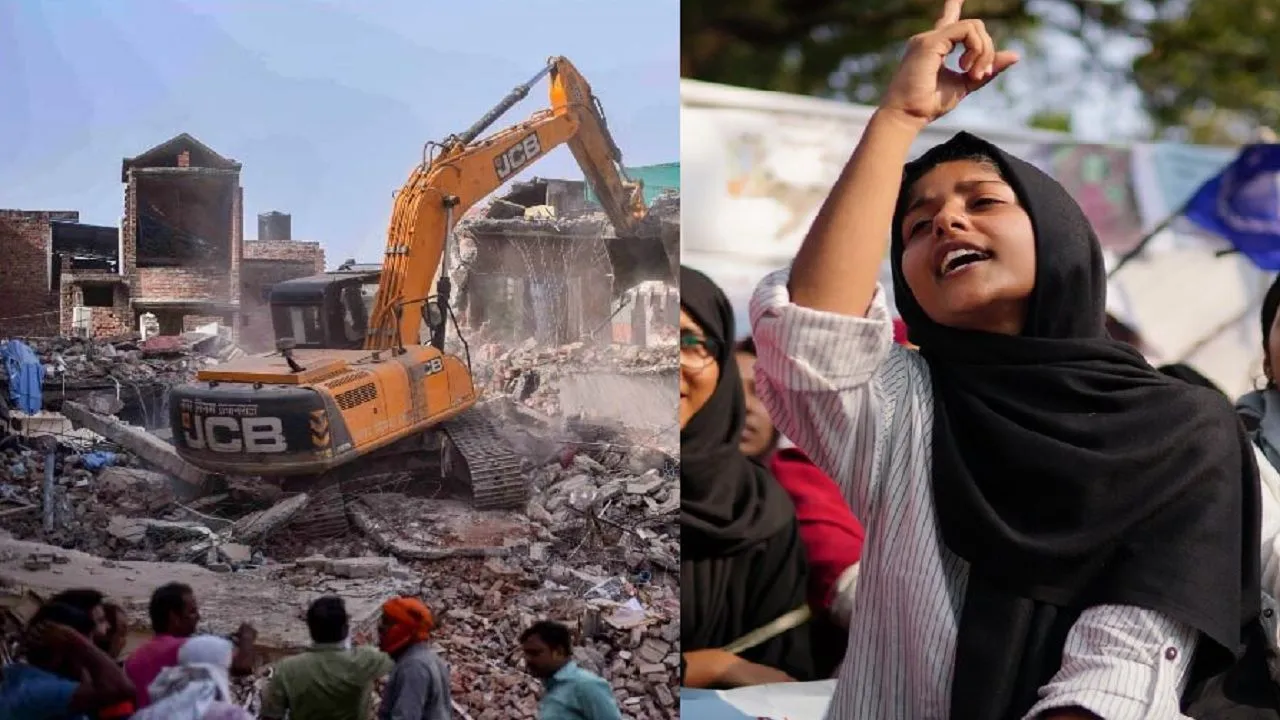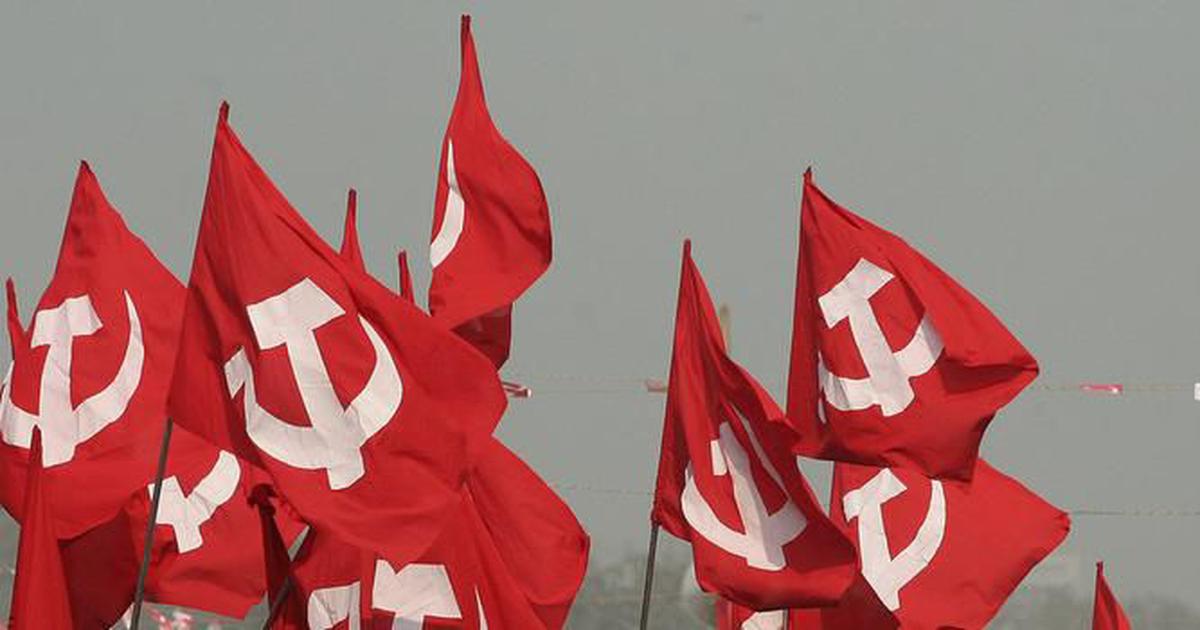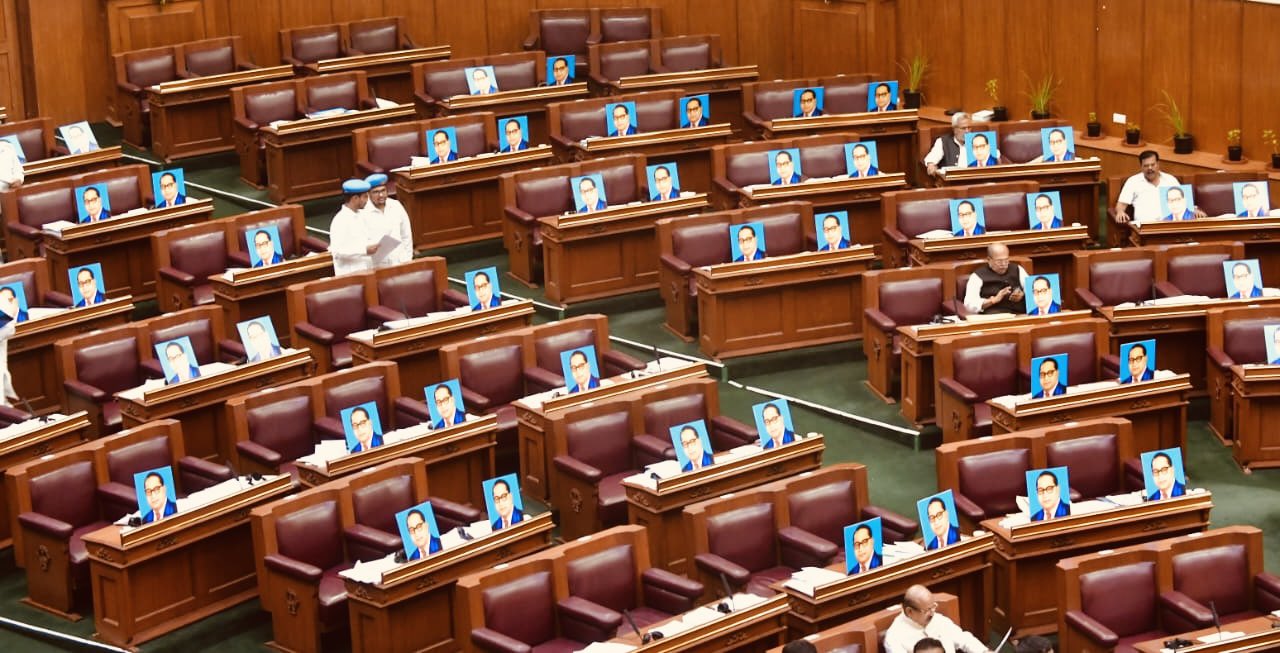Recently, Afreen Fatima’s home was razed to the ground by the Uttar Pradesh government led by Yogi Adityanath. It seems that after Sharjeel Imam, Umar Khalid and Meeran Haidar, Afreen Fatima is on the firing line. This is not the first time that the government has tried to suppress critical voices. Whenever any exploited community raises its voice, governments try to portray the vocal members of the community as traitors to the nation. There is a concerted effort to frame such people and put them behind bars. The objective is to send a clear message that those who dare to demand their rights will be crushed. The demolition of Afreen Fatima’s home, registered in her mother’s name, is a case in point.
A Jawaharlal Nehru University alumna and a sociopolitical activist, Afreen is known for her pro-people outlook. The demolition of her mother’s house has drawn sharp criticism on social media. It is being said that what happened in Prayagraj last Sunday was a black chapter in the history of Indian democracy. It was a blatant misuse of powers by the state government and a mockery of the law and the Constitution. The Uttar Pradesh government is targeting people of specific religions and castes. It seems that the government’s actions are not guided by the constitutional value of secularism but by the ideology that wants to convert India into a Hindu Rashtra.
It all began with BJP leader Nupur Sharma making disparaging remarks about the Prophet Mohammad. Besides Gulf nations, other Islamic countries also protested against it. The police and the protesters clashed during a demonstration held in Prayagraj against the derogatory remarks. Afreen Fatima and her father Javed were held responsible for organizing the protest. Instead of arresting Nupur Sharma and others of her ilk, the government is taking action against those who joined the protest. The Uttar Pradesh Police claim that they are taking action because the protest turned violent.
It appears that Muslims who are coming forward to fight for their rights are being victimized, the only objective being to ruin their lives. They are portrayed as “fundamentalists” and “anti-nationals”. The courts and human rights bodies are maintaining a stoic silence on the issue.
Afreen says that her father Javed Mohammed, who has been accused of instigating violence and arrested, was at his home when the protests were held after the Juma namaz. Afreen’s mother owns the house. Which law permits pulling down the house of the wife of an accused? Secondly, when the authorities were collecting the local taxes payable by the owner of the house, how can the property be suddenly declared illegal? And even if the house was illegal, a proper notice should have been served on the owners.

I know Afreen from her days in JNU. Besides academics, she was also active in social and political movements and soon became popular. Before coming to JNU, she had done her BA in linguistics from Aligarh Muslim University (AMU). Afreen was the president of Aligarh Muslim University’s Women’s College Students’ Union. Her perspective and work had antagonized the conservative men of Aligarh and the university administration. There were many restrictions imposed on the women staying in the hostels of AMU. These restrictions had been in force for years. Even if a female student had to visit a hospital, she would need to seek permission. The female students resented these restrictions. Afreen raised this issue during the election campaign and demanded equal rights for women.
Though her demand was not entirely fulfilled, the university administration did ease some restrictions. She also organized a discussion on women’s leadership in Aligarh. Some men tried to stop the event. The fact is that both communal and patriarchal mindsets are enemies of Muslim women. The communalists portray them as “oppressed”, “illiterate”, “helpless”, “sick”, “weak” and “fanatic” while the men of their own community want to confine them to their homes. Thus, it is a double whammy for them.
In JNU, too, Afreen had to face opposition from both communal and fanatical elements. But she believed in doing rather than talking. Within a very short time, her popularity in the campus soared and won the hearts of the students. Those who know JNU are well aware that a candidate cannot win the students’ union polls without the support of either the Right or the Left. Your campaign speeches may draw fulsome applause but you won’t get the votes without the backing of either of the two camps. This makes Afreen’s achievement even more extraordinary. In JNU, Afreen was associated with the student organization “Fraternity”, which enjoyed the backing of a substantial number of Dalit students, besides the Muslims. Afreen was not just concerned about issues pertaining to campus life; she also used to raise issues related to the interests of the weaker sections of the wider society. The way I see it – Afreen and other women took to the streets in protest against the Citizenship (Amendment) Act (CAA) because they wanted to save their country. Is it because of these qualities that she is being targeted?
(Translation: Amrish Herdenia; copy-editing: Anil)
Forward Press also publishes books on Bahujan issues. Forward Press Books sheds light on the widespread problems as well as the finer aspects of Bahujan (Dalit, OBC, Adivasi, Nomadic, Pasmanda) society, culture, literature and politics. Contact us for a list of FP Books’ titles and to order. Mobile: +917827427311, Email: info@forwardmagazine.in)
The titles from Forward Press Books are also available on Kindle and these e-books cost less than their print versions. Browse and buy:
The Case for Bahujan Literature
Dalit Panthers: An Authoritative History







